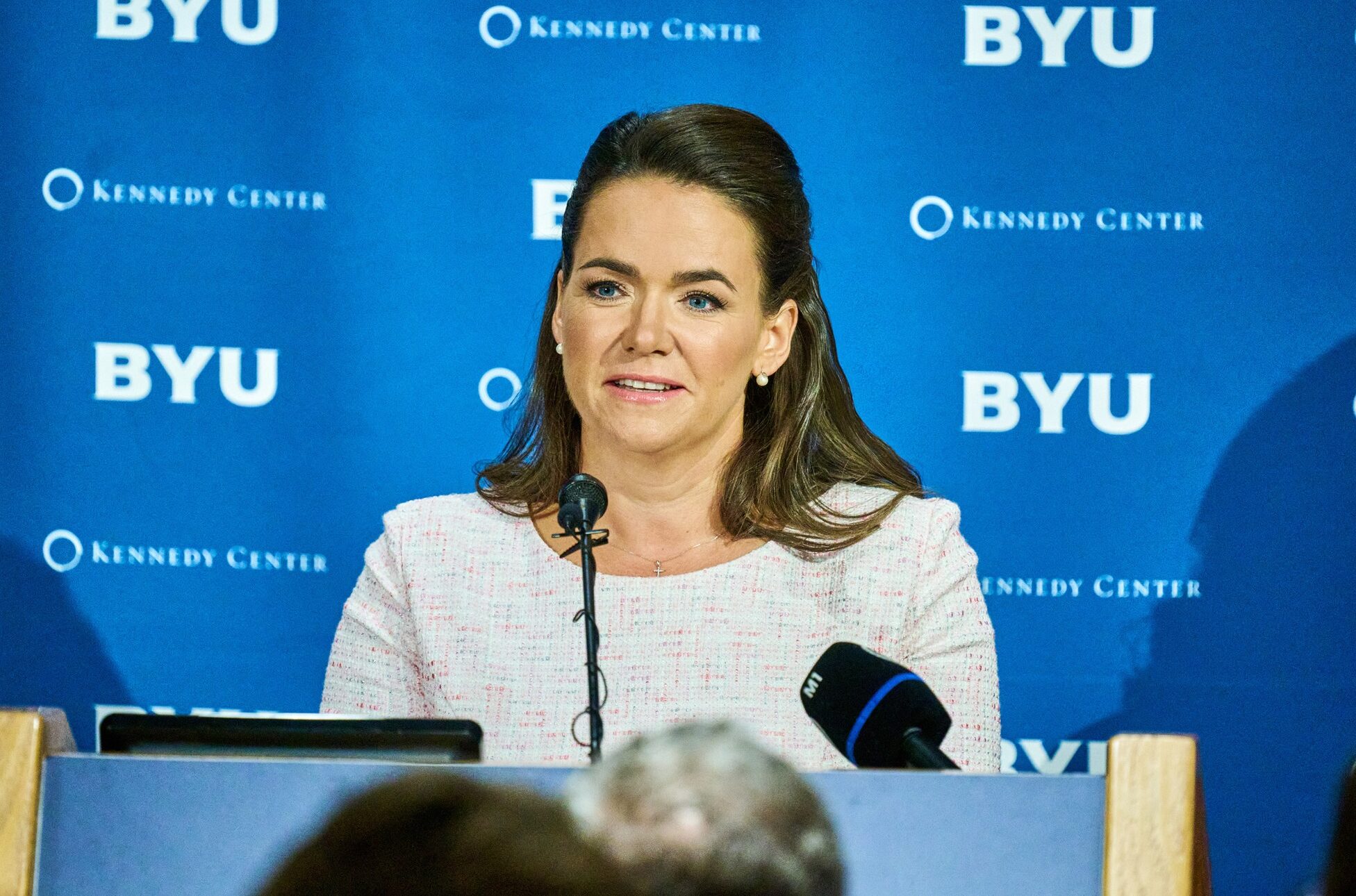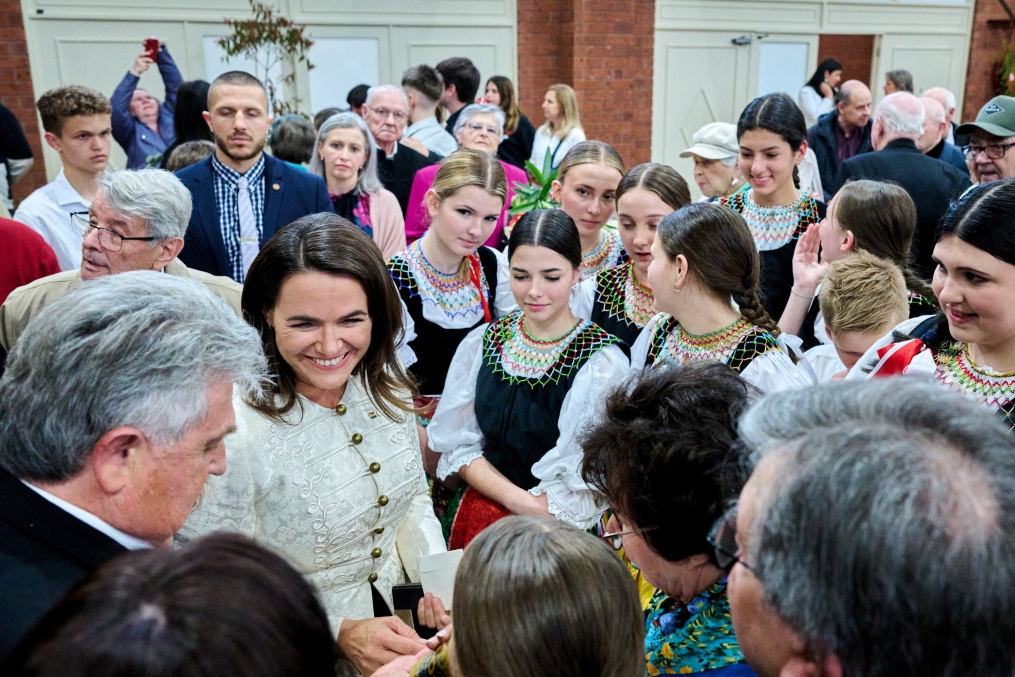
The Hungarian President also paid a visit to the Governor of Utah.Continue reading

The chief conclusion that has emerged alongside the weekend resignation of former President Katalin Novák is that one the one hand, Hungarian democracy is strong and vigorous, on the other that the drive to protect our children is more inviolable than the reputation of any one person, and will thus continue uninterrupted.
Renowned Canadian author and academic, Jordan B Peterson had poignantly summed up what many Hungarians have felt after Katalin Novák’s brief farewell speech on Saturday – “she will seriously be missed”. President of the Friends of Hungary Foundation, publishers of Hungary Today, Professor E Sylvester Vizi had in a personal letter thanked President Novák for her enormous contribution towards Hungarian national unity and for raising the issue of the central role of families. Despite her error of judgement in pardoning a person who was convicted of covering up a series of child abuse cases, even her opponents understand that Hungary is saying good-bye to a politician who was one of the chief architects of the government’s flagship child protection legislation. This continues to be a central element within the government’s efforts to create a stop-gap to trends increasing child abuse cases – both committed by sexual predators, as well as those threatening the mental development of children on an ideological basis.
She’ll be seriously missed @KatalinNovak_HU https://t.co/ZCEWmfyklO
— Dr Jordan B Peterson (@jordanbpeterson) February 11, 2024
There is no point in putting a positive spin on a difficult situation, yet it is hard to ignore the fact that Hungarian democracy, its media, its constitutional players have all reacted in a manner that is likely to leave this society stronger.
There are reassuring signs that all parties involved are taking important lessons from the affair.
Although the media scandal that led to the resignation of Katalin Novák has been initiated by opposition-supporting journalists, and these efforts had an unmistakable political undertone, the case could dispel the deeply entrenched myth about the alleged lack of freedom of media in Hungary. The anti-government media from where the story had originated, regardless of its true motivations, had simply done its job. It was able to act in line with its own goals and convictions without fear of reprisals, and had achieved its goal of removing the highest constitutional figure in the country from her position. Allegations, according to which the government, or even Viktor Orbán has a personal and total control over Hungarian media, something that has been discussed as a matter of course in recent years as in the European Parliament’s left-leaning circles, as well as in Western mainstream media, are now in tatters.
Furthermore, the speed and dignity with which former President Novák, despite being on a foreign tour, had taken responsibility for her decision, helps to dispel another accusation coming from the very side that had been most invested in fanning the flames of this scandal – namely, that of autocracy, in which people close to the government could enjoy impunity, and would be protected against criticism.
On the contrary, in recent years Western democracies have not so much been weakened by the innumerable financial and political scandals involving their key leaders, but by their lack of remorse and the lack of consequences following their missteps. In Western Europe voters are now often resigning themselves to expectations towards their politicians owning up to their mistakes as with the dissipation of political pluralism, elites have been able to close ranks in order to safeguard systemic ideological dogmas. Similarly, sympathizers of the Hungarian opposition have been desensitized by years of endless scandals without consequences, such as the foreign financing of the opposition’s election campaign, or the more recent corruption scandal centered around the renovation of Budapest’s Chain Bridge, to which the capital’s mayor simply replied: “there is no Chain Bridge scandal”.
Last but not least, the President’s resignation had shown that the government’s child-protection agenda is stronger and deeper than the political survival of any one person, be it the President of the Republic. In his recent statement Prime Minister Viktor Orbán has made it clear that his government’s zero tolerance on child abuse is just that, zero tolerance. He has also promised a constitutional change that would exclude people convicted of crimes against children from benefiting from any future amnesties. Katalin Novák herself, a former minister for families and one of the architects of the child protections legislation, had stated in her farewell speech, that
she is taking the step in order to safeguard the legacy of all who have worked towards making sure that Hungarian children are protected both in a physical, as well as in a mental sense in their families, in schools and in courts.
Novák’s own political and social legacy will likely live on, her drive to reverse negative demographic trends as well as protecting children from harmful ideological influences in schools and the media remains a flagship project for the government. Furthermore, by pursuing the presidential amnesty story, the left-wing media had unwittingly created a tangible contrast between political forces that they support on the one hand, and the high bar set by Katalin Novák, that in future is going to be hard to ignore.
Opposition politicians who in the past have voted against every single anti-child abuse and anti-youth indoctrination measure proposed by the government, and have fed baseless accusations that the legislation is primarily directed against the gay community, have scored a pyrrhic victory. Hungary had lost a well-liked, internationally respected public figure, but despite the error of judgement Katalin Novák had made, she had left behind a lasting political and moral legacy that will be hard to emulate by her successors.
Featured image: MTI/Sándor-palota